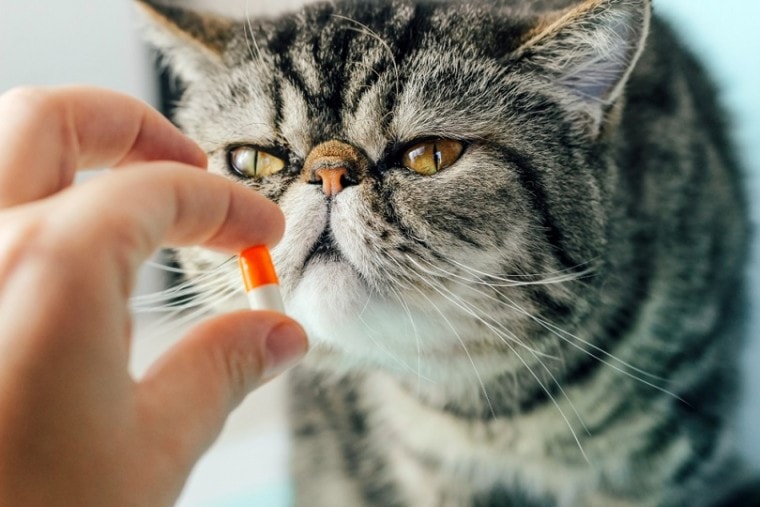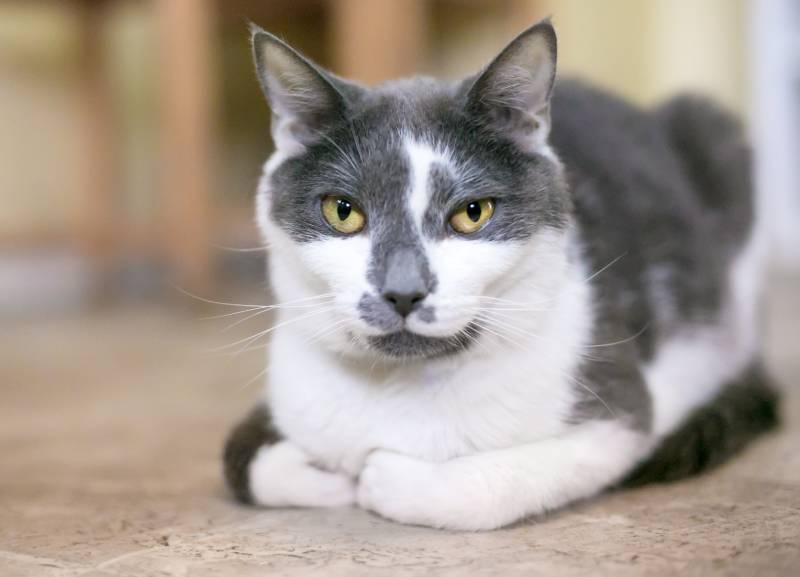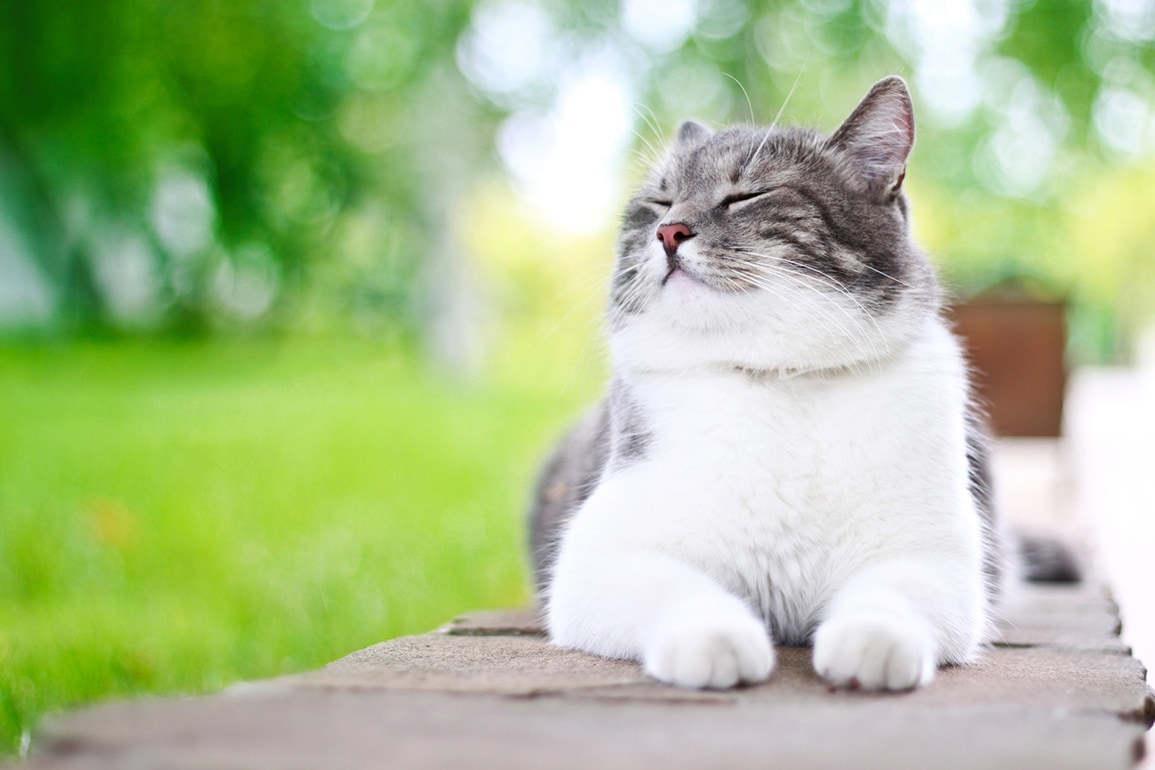
Some cats may benefit from a bit of a boost to their immune systems. Older felines are often at risk of severe complications from various infections, especially if they have underlying conditions. Certain health conditions can also affect a cat’s immune system. In this case, your vet may want to consider a supplement to boost your cat’s immune system as much as possible.
There are countless supplements on the market that claim to support the feline immune system. However, what does the science say about their effectiveness, and which ones work the best? There’s not a clear yes or no answer. In this article, we look at the science behind immune-boosting supplements for cats and help you determine if one may be suitable for your feline.
Important Considerations
Before purchasing any immune supplements, it’s imperative to consult with your veterinarian. Healthy cats rarely need an immune boost, and too much of even a good thing can easily turn bad. Many of the supplements on the market are not science-backed, approved by the veterinary community, or legally regulated, and it can be overwhelming and confusing trying to choose the right one. This is where your vet comes in: They are there to give you all the evidence-based information, consider your cat’s particular case, and recommend any supplements that your cat may need.
Immune supplements are not a replacement for a healthy and balanced complete diet that contains all the nutrients, vitamins, and minerals that your cat needs.
This article is also not a replacement for veterinary advice and should not be interpreted as such. An owner’s responsibility is to seek veterinary advice before starting their cat on any supplemental products, as some can be harmful in certain instances and at certain doses. Immune supplements is a broad term and may involve a variety of products with different functions and purposes.
Are Cat Vitamins and Supplements Necessary?

Your cat’s body is designed to function in a specific way with specific vitamins and nutrients. All of these can be obtained from a high-quality complete and balanced diet that follows the AAFCO guidance.1
If your cat’s body does not have enough of these nutrients, it may not function effectively. For instance, if your cat’s immune system doesn’t have everything that it needs to function, it may not work as well as it would otherwise. The most common reason that this may occur is poor-quality cat food, whether it’s an unbalanced commercial or homemade diet. When there is a specific issue with a feline commercial diet, as soon as a problem is identified, the food gets withdrawn from the market. Make sure to follow the recalls regularly so you don’t miss out on any important information. As scary as cat food recalls sound, these are important safety features that ensure regular quality-control testing and compliance with the regulations.
Most cats that are healthy have a good immune system and do not need any additional supplements with their balanced diet. The only time that a vet may recommend supplements is in cases of cats suffering from chronic health issues, such as infections (often viral), organ dysfunctions (such as kidney or liver disease), chronic diarrhea, and similar problems. Supplements can only be considered after the diagnostic investigations have been performed to identify the cause of illness and appropriate treatment has been initiated. In that case, supplements are there to help your cat battle their illness. For example, a supplement may provide good bacteria and vitamins in case of chronic digestive issues. Your vet can test the vitamin levels and can tell you if your cat actually needs them, and they can monitor their response to supplemental addition.
Supplements vs. Nutraceuticals
| Dietary Supplements | Nutraceuticals |
| Intended to supplement diet and increase dietary intake of a specific ingredient | Supplement the diet by increasing the total dietary intake |
| Include vitamins, minerals, herbs, amino acids, enzymes, and live microbes (or probiotics) | Consumed for a health benefit |
| Come in pills, tablets, capsules, gummies, soft gels, liquids, and powders | Come in extracts, concentrates, or combinations of vitamins, minerals, botanicals, herbs, or dietary substances |
| Regulated and approved by the FDA | Not regulated by the FDA in that sense |
| Not intended to treat, diagnose, prevent, or cure diseases | |
| Sometimes categorized under dietary supplements |
Before we move forward, it is important to try to understand the difference between a supplement and a nutraceutical. These terms are extrapolated from human medicine and nutrition, and they are often used interchangeably, meaning the distinction can be a bit confusing.
So, let’s try to simplify. A nutraceutical is a pharmaceutical-grade nutrient that is more of a diet additive than a supplement. It isn’t aiming to fill any particular gap in nutrition. Instead, it contains high levels of specific ingredients that are thought (or are proven) to be helpful in certain situations.
The FDA doesn’t recognize pet supplements as a special category. Rather, the agency regulates these products as either food for animals or animal drugs, depending on their composition of ingredients and intended use. An animal drug needs to be approved by the FDA before the company can legally sell it, while a food for animals doesn’t need the FDA’s premarket review to be legally marketed, but it does need to be safe to eat, produced under sanitary conditions, free of harmful substances, and truthfully labeled.
The National Animal Supplement Council, a nonprofit coalition of manufacturers of supplements for companion animals, has its own labeling system for animal supplements that is similar to labeling on the human side. Its yellow Quality Seal ensures that the products have successfully passed a comprehensive third-party audit and maintain ongoing compliance with rigorous NASC quality requirements.
As you can see, there is a great deal of room for misinterpretation, and the regulation of animal supplements is a gray zone. Most vitamins, minerals, and certain oils that deliver fatty acids fall in the realm of food. Manufacturers would have to invest a great deal of time and money to get a supplement approved as a food additive and even more as an animal drug. That’s why it’s so important to follow your vet’s recommendation when choosing a supplement for your cat if they require one.
Do Immune Supplements for Cats Work?

The immune system requires particular nutrients to work properly. If a cat is given more of these nutrients than the minimum daily recommendation, their immune system may work better. Remember that the daily values are often expressed as minimums. They’re what your cat needs to work “okay.” More is sometimes a good thing but it can also be a bad thing. Balance is essential.
Your cat’s high-quality food that follows AAFCO guidance will contain all the necessary nutrients in appropriate amounts to ensure that your cat is healthy and thriving. You will rarely need to consider supplements, usually only when your vet recommends them. Do not use any supplements without consulting your vet, as you may cause more harm than benefit.
There haven’t been many studies done on immune supplements for cats. One of the few that have been published is a 2013 study that only included 43 cats. The cats were split into different groups and supplemented with different things. The immune system response was then measured based on the specific activities of the white blood cells, which is basically how strongly the immune system responds to a germ. The supplements arginine, nucleotide, and salmon oil all showed significantly more immune response than the control group that only ate high-protein cat food. The study concluded that supplementation might help the immune system of healthy cats respond better to infections and diseases.
Therefore, it does seem like these supplements may work for some cats. While more studies are necessary, the current information looks promising. Of course, we recommend speaking to your vet before choosing any of the supplements for boosting your cat’s immune system, as your cat may not need them.
There are other supplements that may be helpful that weren’t directly studied in this research. For instance, probiotics are often thought to affect the immune system. One paper looked at several studies involving probiotics and cats. Statistically speaking, cats seemed to be affected by certain infections for fewer days when they were given a probiotic supplement. There are also few side effects to probiotics, so they are usually considered safe options for most felines.
L-lysine has been shown to have minimal effects on the immune system. Although they are short term, they may reduce the shedding of herpesvirus in affected cats. If it’s used to improve your cat’s immune system, this supplement needs to be given several days before the anticipated upcoming stressful event.
What Is the Best Immune Supplement for Cats?
This will vary from cat to cat. Most cats don’t need any immune supplements. For those that do based on the veterinarian’s assessment and advice, it will greatly depend on the reason for using supplements. Your vet will recommend a suitable one for your cat, first taking into consideration your cat’s regular food.
If your cat’s food contains a high amount of fish oil, they likely don’t need an extra fish oil supplement. Some cat foods already contain probiotics, which may limit the need for even more. Since the evidence about the safety of certain supplements remains scarce, it is important not to overdose your cat, as this may cause a stomach upset or other health issues.
In general, there are a few high-quality immune supplements for cats on the market. Not all of these will be suitable for every cat, however, depending on the vet’s recommendation and the cat’s diet and needs:
What Immune Supplements Don’t Work?
Many supplements on the market claim to support your cat’s immune system. However, there isn’t much science backing most of them. For instance, many include mushroom extracts, though we have no evidence that these help your feline’s immune system. No scientific information is available on how they may affect your cat’s body, the potential side effects, and the medications that they may interact with.
For this reason, we do not recommend giving your feline supplements that have not been studied extensively and approved by your vet.

Final Thoughts
Certain immune supplements for cats do work when used appropriately in accordance with the vet’s advice and in the right amounts. However, not all of them are made equal. Science has discovered that certain nutrients can have an immune-boosting effect. Supplements that contain these ingredients do tend to work efficiently. Of course, the exact effect varies from cat to cat. Also, many cats have absolutely no need for supplements, and a few may even cause adverse effects.
There are several immune supplements on the market that contain ingredients that haven’t been tested. No one knows if these supplements work or if they have any significant side effects. For this reason, we can only recommend supplements with current science behind them.
- Next on your reading list: 10 Best Lysine Supplements for Cats – Reviews & Top Picks
Featured image credit: Piskova Photo, Shutterstock








